#7: Образ будущего или путешествие Андрея с волшебным клубком Бабы Яги
[WIP] | [In Progress]
*Using Russia as an example
“Vecheism”
The ideas of “democracy and freedom” are powerful, but they can be used as cover. A real alternative can be justice, brotherhood, and family values. What follows builds on these principles.
Goal:
Justice, brotherhood and family values
We are a “family” 🏡👨👩👧👦
Possible roles and participation structure in shared projects/companies:
- Parents (the State):
- Share: 25%
- Special right: Veto
- Older brothers/sisters (“Owners”):
- Share: 25%
- Votes: 3
- Middle brothers/sisters (“Workers”):
- Share: 25%
- Votes: 3
- Younger brothers/sisters (“Residents of the state”):
- Share: 25%
- Votes: 3
It’s shameful to “sail on a yacht” while other “family members” (pensioners, etc.) scrape by.
This can be seen as a “light re-privatization” with partial “nationalization” of enterprises that use common labor and/or extract resources.
Current “Owners,” instead of “100 million rubles a year,” would receive 25% of that. If they disagree now (they do have a choice), the law can guarantee their heirs 25% of the estate upon their death, which is more than enough for a comfortable life (the rest follows the scheme above). The rationale: some people can’t imagine themselves without “steamships, newspapers, and factories” and are ready for extreme actions to keep them. Their interests should be maximally accommodated—within the overarching aim of justice. This minimizes violence toward current owners and reduces future social tension, increasing collective well-being without sacrificing the “elite’s” comfort. It would also be a strong argument for “projecting influence outside Russia.”
Payouts: dividends via “Gosuslugi.”
Important: if 25% for “Owners” seems too small, schemes keeping up to 99% for them can be provided. The core idea is to break the inertial drift toward “indifference to other family members.” Even small changes may, over time, lead to qualitative shifts. So you can even start with 99% “for me” and 1% for the rest—that too “can work.”
“...perhaps ten will be found there? He (the Lord) said: I will not destroy it for the sake of ten...”
– Book of Genesis, chapter 18, verses 32–33
I don’t think our prospects are bright unless we find “10 Older brothers/sisters (“Owners”) willing to share ‘1%’ with Younger brothers/sisters (‘Residents of the state’: pensioners, etc.).” If not, I don’t think it makes sense to consider the proposal further.
Essence:
Integrating the principles of the ancient Veche and the Greek Syssitia into the digital realm.
Creating a virtual (and not only virtual) “negotiation table”—a space where:
- representatives of different social groups can talk as equals
- a culture of constructive discussion is formed
- through joint work on projects, people build the habit of finding common solutions
A vector for thought (admittedly imperfect, since philosophers and other wise members of society have skills “useful to society”): participation in the Veche (voice and dividends) in “common projects” can be limited to the head of a family (for example, a man) who has dependents (children, elderly parents, etc.), with “weight” (and dividend size) proportional to the number of children, etc. This may remove the financial component from family/children issues, giving a strong impulse to solve depopulation and demographic crisis.
How: “Vecheism”
- An “organizational constructor” — a tool for quickly creating such platforms.
- In-person meetings + digital assemblies on a blockchain platform.
- Common projects where success depends on each participant’s contribution.
Striving for a society where:
→ Social barriers fade
→ The tradition of meaningful dialogue is revived
→ New forms of cooperation emerge
Lecture — presentation “Vecheism: Organizational Constructor” (07.07.2025):
Sometimes instead of words you only get “mooing”... and you need to “moo” for a while before finding the right words for the new inner content.
Below are my “mutterings.”
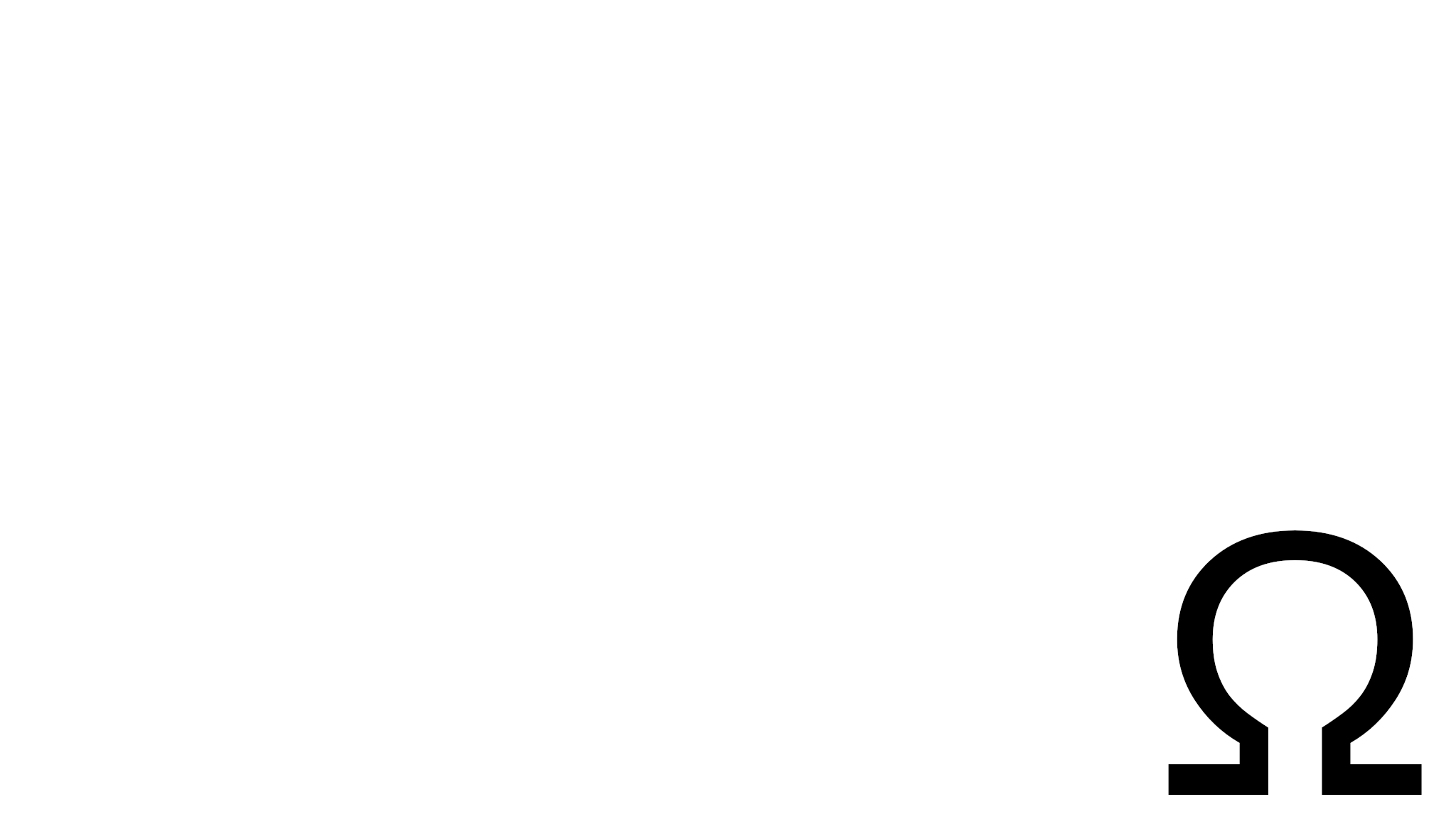
Questions:
- what “colors” can we use to paint the future
- why “…isms” aren’t the answer
- why hypotheses, not “I know”
From the author
Earlier I raised what I think is the main question: why and how do we interact with each other? Here I’ll “paint” a possible image of the future. I’ll use two “types” of “paint.” To “paint” the future, it’s enough to describe the basis:
- meanings — what is the good?
- values — what is valuable?
- a metaphysical “mythic story” — why? and for the sake of what?
- a “vector” — what is “improvement”?
Perhaps this lecture—presentation is, in fact, my “mooing.”
Lecture — presentation (draft):
Expanded text — notes to the video lecture
Type 1
Everything has already been said, but we didn’t “hear” it or didn’t “believe” it.
The “picture of the future” should be “simple” and “naturally”—“beautiful,” like a woman, like nature. Everyone will probably see their own meaning and beauty in it:
- a “professor” will “see” deep, interesting questions and theories
- a “soldier” a reason to live and “fight”
- a “policeman” will feel the importance of his work and people’s gratitude
- a mother will want to give her little daughter a baby brother
- an “artist” will want to paint and create
- a “Marxist” the possibility to realize his ideas
- a “capitalist” long-term sustainable profit
- an “investor” potential
- a “well-known journalist” motivation to risk her life for it
- someone who grew up without parents or a father, motivation to become a better version of himself and found the family he never had
- a “politician” will see his children happy in the world he “builds” and leaves behind
- a “famous producer” will see that his risks weren’t in vain
- a “well-known businessman” will see a chance for a good, dignified life for himself and his lineage… maybe some will even want to share their resources, skills, and experience as guidance for the next generation
- a “little boy” will want to “print” it on a card, “draw a heart,” and give it to the “girl” from the next building he never dared approach, with whom he walks to kindergarten
- …
- and someone, perhaps, will “see” God in it (in the “handwriting”)
There are infinitely many such “angles” and deep meanings there. With or without “big words,” we can describe this picture.
…
The cup of life would be cloyingly sweet if bitter tears did not fall into it.Pythagoras
Image of the future: “Ω — family”
The family is a state in miniature.A. T. Averchenko
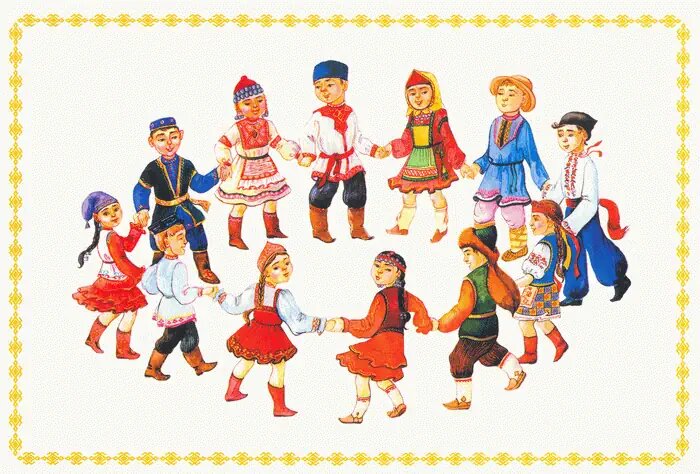
“Ω — family” — “One big family living in one big common house.”
Accordingly, the family is both the basis and the aspiration. That is why traditions and lineage matter. We complement and help each other, learning the best from everyone and supporting one another in “difficult moments,” sharing “worldviews,” “traditions,” “advice,” “resources”…

Therefore, the concept of family is central.
A “family” is needed to raise a “child”; likewise “Ω — family” is needed to “raise” a “human-creator.”
Human — Creator
(…in the image of God)
*creation, not destruction and degradation
“Ω — family” is made of families… and families are made of people, “members of ‘Ω — family.’”
- meanings — what is the good?
what is good for the “family” and the “future of the children.”
- values — what is valuable?
what makes the “family’s” life “better, happier, healthier, more joyful”
- a metaphysical “mythic story” — why? and for the sake of what?
we are already “one family, brothers and sisters”… didn’t sages and prophets say this? the fulfillment of prophecy and the approach to “life”… “spiritually rich and meaningful,” after “filling the belly” (satisfying material needs) … approaching “God” or perhaps “cherished dreams”
- a “vector” — what is “improvement”?
that which is “no worse than before,” relying on “feedback from all family members”; in this “scheme” there is a “stepwise”—“careful” movement “forward,” leaning on the “past,” taking all the good from it.
We love acronyms — USSR, as an option if striving for “Ω — family”: Union of Creative “Family Republics.”
Just as with death, the riddle of family is unclear, unresolved. Dynasties, societies, empires turned to dust when the family began to collapse.V. P. Astafyev
Capitalism vs Marxism vs Anarchism vs …
It’s hard to find a black cat in a dark room, especially if it isn’t there.
Asking which “…ism” is best is a category mistake.
Any “rigid system” in an “open world” “breaks.”
Any “ism” is a concept… perhaps useful, but still a concept. A human is more complex than any concept—as is “reality.” Thinking in “isms” fails in the long run because people and/or “reality” are very complex… and change.
Just as there is disease of the body, there is disease of a way of life.Democritus
Conflicts
Any “ism” can be cast as a social game: it has “roles,” “duties,” “rights,” “rules,” “values,” “payoffs,” etc. Conflict appears where there’s a demand to find a “new point of collective consensus”—a “balance.”
Any “unbalanced” (social) game leads to “conflicts.”
Conflicts are resolved in three ways:
- “step outside” the “rules” and “roles” of this “game” and “reassemble” a “new game”
- physically eliminate “conflicting roles/functions”
- a “hybrid” of 1 and 2
I’m interested in 1; 2 and 3 become relevant when aggression prevents 1.
A simplified example with chess:
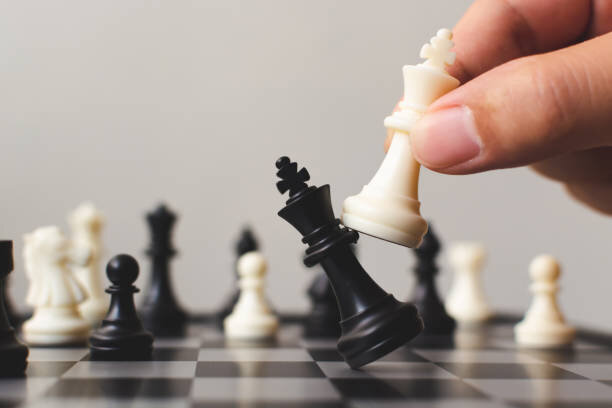
By “playing” within the “game of chess,” we are inevitably “opponents” and act only within the “prescribed”: the knight “in an L,” the bishop “diagonally”… According to Law 9, “Einstein’s Law of problem-solving and systems analysis”, the “conflict” is irresolvable within this “game”; to “resolve” it, we must “step beyond the prescribed roles.”
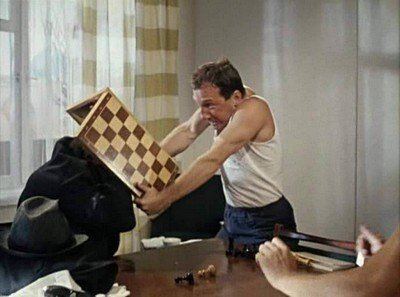
People chase pleasures, rushing from side to side only because they feel the emptiness of their lives, but do not yet feel the emptiness of the new diversion that draws them.B. Pascal
A lyrical aside
If I were growing up “again” and there were “summer exchange” programs to live as a class in other republics (Altai, Chechnya, Kuban, Yakutia, Switzerland, Normandy, Africa…) at the State’s expense, I’d happily use the chance to better understand and learn from other cultures. I’d study other languages (Chechen, Bashkir, Ukrainian…) to better understand “life… and myself” and to later “find common language.”
I see “Russian culture” and the language as a “metaphorical bridge for finding a common language among all cultures”... “as equals.”
“Balance” in “games”
A game is “balanced” if any participant is “not against” starting from “randomly chosen roles.”
Continuing with chess: chess is not balanced because there’s a difference in which side starts, expressed in a built-in advantage. To “balance” it, you play an even number of games, alternating the first move.
“Balance” in a “game” implies that within a “finite” number of “moves,” each “participant” can switch “their role” to another they “prefer” (there are no “objective” constraints in the “game” preventing “anyone” from becoming “rich”/“mayor”/“singer”/“president”/“professor,” etc.).
In chess: in a match of “2-4-6-8-…” games, “Player A” can be both winner and loser, depending “solely” on “individual ability”—the format grants no advantages, since both “A” and “B” have equal starts with White and Black, “4/4.” Hence each agrees to a “random” decision on who has the first move in game one.
People live in such complete ignorance of the vanity of human life that they are utterly perplexed when told of the pointlessness of chasing honors. Isn’t it astonishing!B. Pascal
On “bases”
The basis of any “ism” can be determined by answers to three questions:
- who am I?
- why do I interact with others?
- how do I interact with others?
“As many people” as there are “answers.” The answer also depends on one’s stage of development at a given time, historical period, emotions, context, other people, task, and more. Answers may (and do) change over time and context.
An “...ism” is the “vector” sum of “individual” “answer-vectors” to 1–3.

Knowing vs Assuming
Any “…ism,” any “answer” — a “concept” — is a “hypothesis” about reality and/or people. There are “infinitely” many “concepts” and “variations”: capitalism, Marxism, anarchism, the threefold social order, dictatorship, communism, anthroposophy, Greek myths … Like it or not, “more or less all” “concepts” can be useful and even preferable in some contexts, for some collective tasks, for some people.
It’s more accurate to think of “…isms” as HYPOTHESES for solving “collective cognitive and/or physical tasks.” The right question is:
how do we build tools to solve different collective cognitive tasks effectively: rapidly formulate “collective hypotheses” to solve “collective cognitive tasks,” implement, test, collect and process feedback, adjust and change implementation, repeat the cycle
We should take a scientific approach.
There is no national science, just as there is no national multiplication table; what is national is no longer science.A. P. Chekhov
Solving collective cognitive tasks
People are not equal... but people are equalclarification: we are not equal… someone is smarter in some matters, some can make music, algorithms, create and lead large projects… “everyone” can be a “teacher”
Collective cognitive tasks will likely always exist, and perhaps their “complexity” will grow.
There are three ways to “agree”:
- agree “without violence”
- agree with “hybrid violence”
- agree with “violence”
The second tends to converge either to the first or to the third. The third ends with “final violence”—death. If the “opponent” can “take the other with them,” it’s mutual “end.” Therefore, in systems where a “player” can “take the opponent with them,” the first option is the only one that in the limit doesn’t lead to a “mutual end.” In such a “system”:
We’ll have to agree anyway — it’s a matter of time... or mutual end
Note: I’m not crossing out aggression or war. I define violence as coercive violation of another’s will; if participants agree to “fight,” that is not violence but “aggression.” The same holds when “attacked.” In this concept, aggression is acceptable, but aimed at “non-violence” and/or “defense.”
Vecheism
Since we “like” “…isms,” I suggest calling implementation of 1 “vecheism.” Vecheism is a mechanism for “contractual” discovery of “collective agreement” to solve “collective cognitive tasks” (including a “force component” to avoid “Fig. 3”).


Unlike other “isms,” vecheism doesn’t assume predefined roles in any particular “ism,” but relies on a family model for deciding a collective hypothesis and implementation—we should start from what we strive for — “Ω — family,” and it rests on three foundations:
- truth (striving for truth, first with oneself)
- justice (striving for justice, knowing it may differ for each)
- honor (striving to “live by conscience,” to live in line with one’s “soul,” to “not betray/barter the soul”)
In nature everything is wisely thought out and arranged; each should do their own work, and in this wisdom lies life’s highest justice.Leonardo da Vinci
Agreements reached (“shook hands on”) at the veche must be honored (“a given word must be kept”).
Family:
God (the one “parents listen to”; a set of “principles-rules” — “do not kill, do not steal… ”)
“parent” — right of veto (“parents don’t interfere with children’s decisions but teach them to grow up… warning of obvious mistakes from experience”) — 25% of “profit” (example: “investors”/“founders of large projects”… those who have much to give/teach “children”)
“older children” — 3 votes — 25% of “profit” (example: “directors”/“senior management”…)
“middle children” — 3 votes — 25% of “profit” (example: “workers”/“participants”…)
“younger children” — 3 votes — 25% of “profit” (example: “consumers”…)
Vecheism is a way to select and try “collective hypotheses,” implementable on a blockchain. Importantly, when making a decision, you also decide how to collect feedback, which can be done via mobile devices to quickly see whether we’re “moving in the right direction.” The system will remember experiences and interaction “templates,” and suggest ready-made “collaboration” templates with the option to adapt (as Miro, Notion, DAO constructors do). The result of collective work is distributed via the blockchain system (also used for voting, feedback, etc.).
As a person “develops,” they can “grow up” and/or become a “parent.” Existing companies (Sber, Gazprom…) can be reformatted into “vecheism,” keeping current structures… but now everyone “wins from the success of the shared family business—financially too.” You can start by “testing” at a small enterprise, draw conclusions and adapt, then gradually try in other contexts, factoring in each case’s specifics.
I have not met a person from whom there was nothing to learn.A. de Vigny
Vecheism — our proposal to the World
If you wished it, you cannot separate your life from humanity. You live in it, by it, and for it. We are all made for cooperation, like feet, hands, eyes. People exist for one another.Marcus Aurelius
Given our people’s aversion to rigid disciplinary systems, this might have both flexibility and a foundation close to us (justice-truth-honor) — something we can “offer” the world as an alternative. We are not bound to any form and can take the best of what exists, invent new things, new “isms,” and test them efficiently (first small-scale, then larger with adjustments… perhaps what the USSR lacked for gradual change).
It seems “our people” lean more toward “substance” than “form.” Perhaps that’s why PR, marketing, branding, etc., weren’t “invented” in “our milieu” but came from outside. They’re about “form,” in which we often lag other cultures. Maybe we should “accept ourselves as we are”: why do we need something, even if it “sounds, smells, and feels” good, if it lacks justice, truth, and honor? To solve “collective cognitive tasks,” perhaps we should start from the base: justice-truth-honor, and pick “form” “situationally,” relying on others’ “experience-feedback.”
The base of “vecheism” is an “organizational constructor” (on blockchain) with fast feedback. Smart contracts reduce “bureaucracy,” encode “roles,” “legal details and templates,” enabling creation of any organization in “a few clicks” (LLC, DAO…) and contracting within them (e-signature); initial groundwork is underway. Opening any interaction form, modifications, etc., are pre-encoded and integrated with the legal system, drastically increasing problem-solving speed.
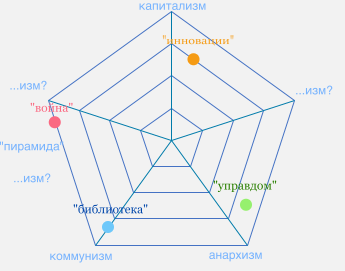
Each “point on the slider” (Fig. 7) is an organization. The platform can suggest interaction templates, etc.
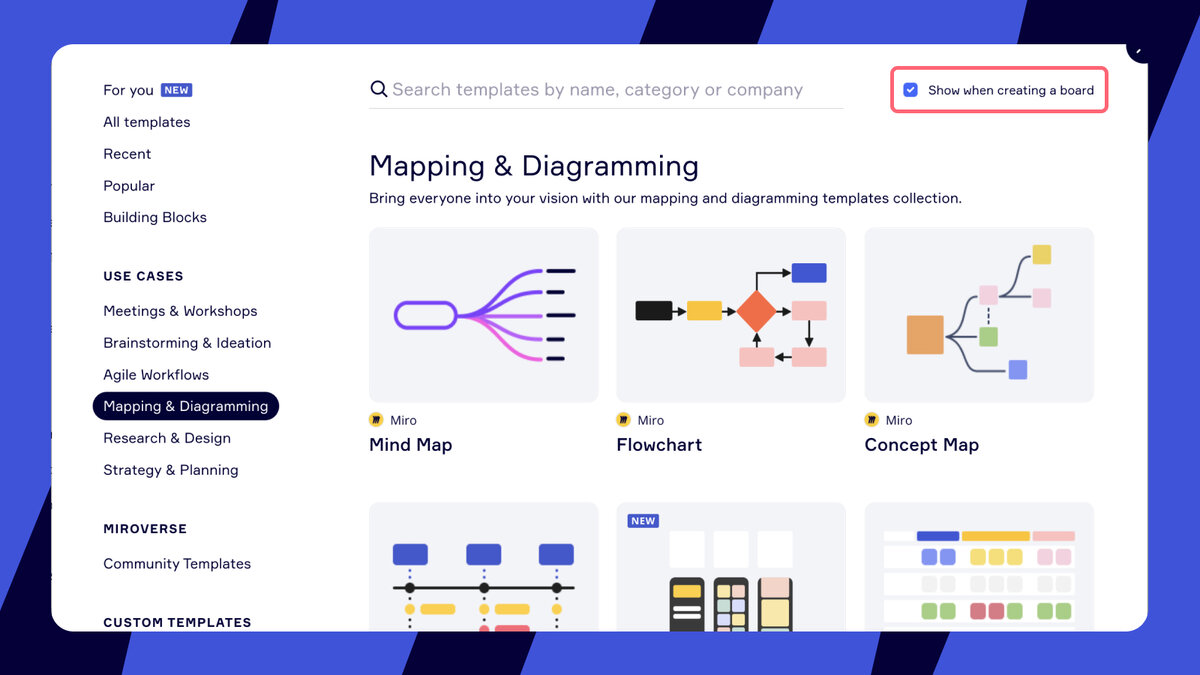


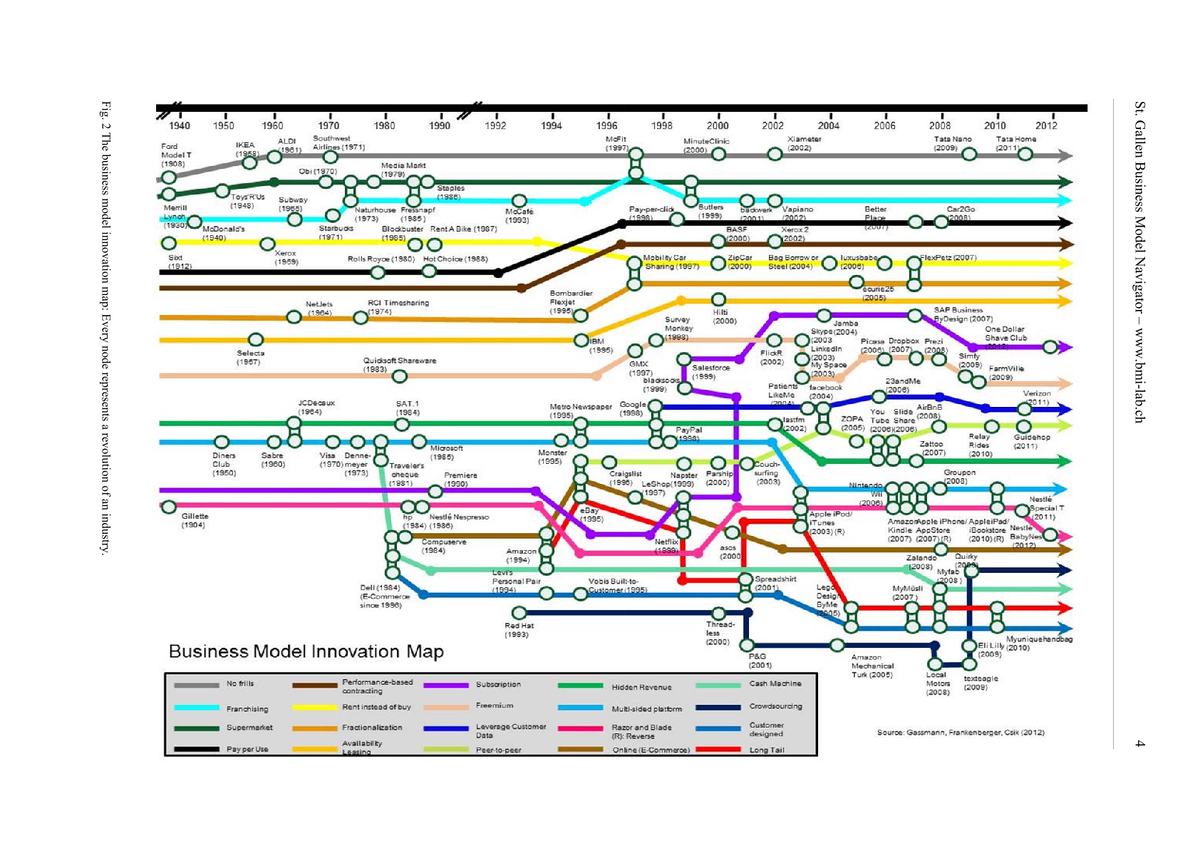
Templates, feedback, recommendations, experience solving tasks in different contexts, etc., are shared by all participants: all code is Open Source, so others can “program” their own “organizations”-“hypotheses”-“…isms,” etc.—collective work for the common good. All interaction forms are vetted for legal compliance, as are all smart contracts. Organizational activity reports can be open to “as wide a circle as appropriate,” depending on context.
In every situation something consoling can be found, if one looks well.D. Defoe
Justice
Russia advocates a multipolar world. Perhaps the word “justice” is deliberately left unsaid (i.e., a “more just world”) so as not to “accidentally look in the mirror and see an unflattering reflection.”
As we say in Nikolaev:
Before you call someone out, make sure you can back it up.
Also,
You must stand by your word:
perhaps “inside” we should strive for “no less justice” than “inside” our “opponents,” not only in “geopolitics.”
It seems “hot phases of confrontation” weren’t our weak spot, but “cold phases.” When the “hot phase” ends, if there’s no striving for justice (whatever the form) “inside,” over time internal contradictions will accumulate, risking a repeat of past mistakes. I felt ashamed, back when I still lived in Ukraine*, seeing how our pensioners and others lived.
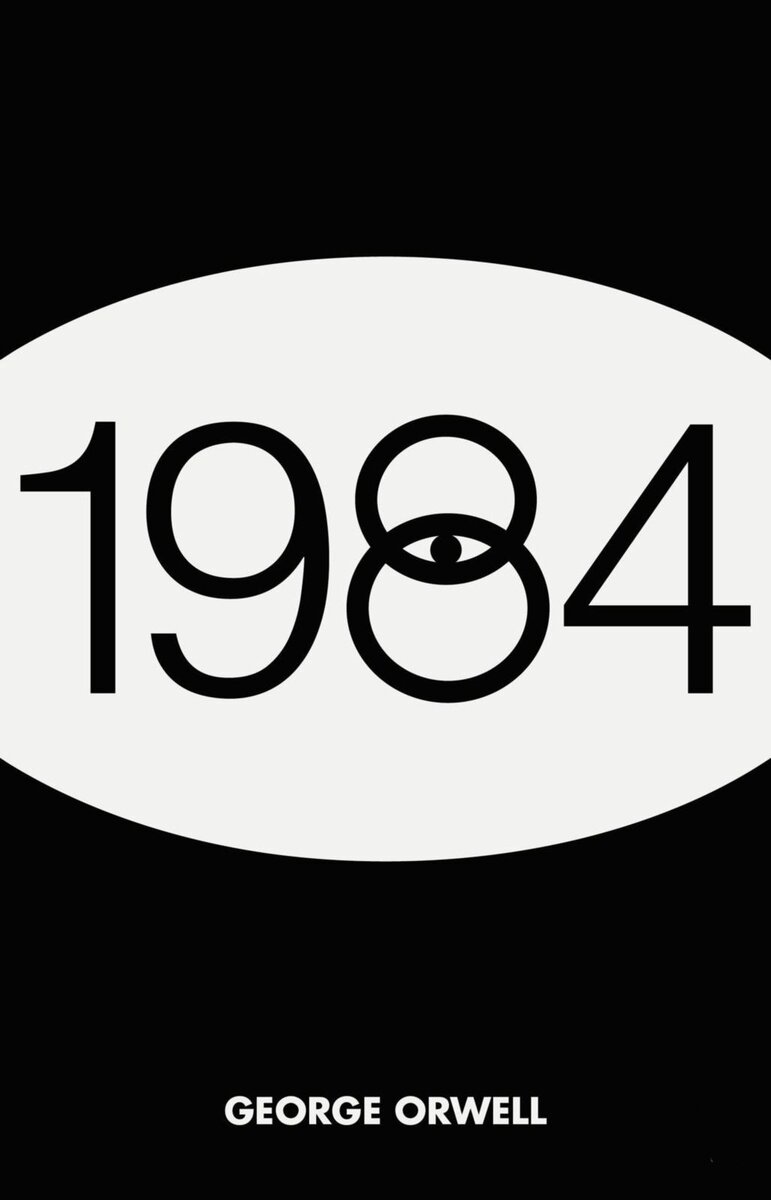
**according to newspeak v10.01, the “correct” phrase is “in Ukraine”; I haven’t “retrained” yet; 1984.
I don’t see “just” grounds why enterprises extracting natural resources shouldn’t share profits with all the people in the “USSR.” Note: I’m not claiming I’m right; perhaps there’s an “angle” (arguments) from which this state of affairs seems just — then we should consider it.
If owners don’t want to reformat into a “family option or similar” — that’s fine; some people care about owning “newspapers, factories, and steamships”… it happens… as long as it will pass… We can wait 11–111 years until they leave — no one has taken anything along yet; then gradually test different options if there’s demand.
Nonviolence
To be a man is to feel that you are responsible for all.A. de Saint-Exupéry
Examples.
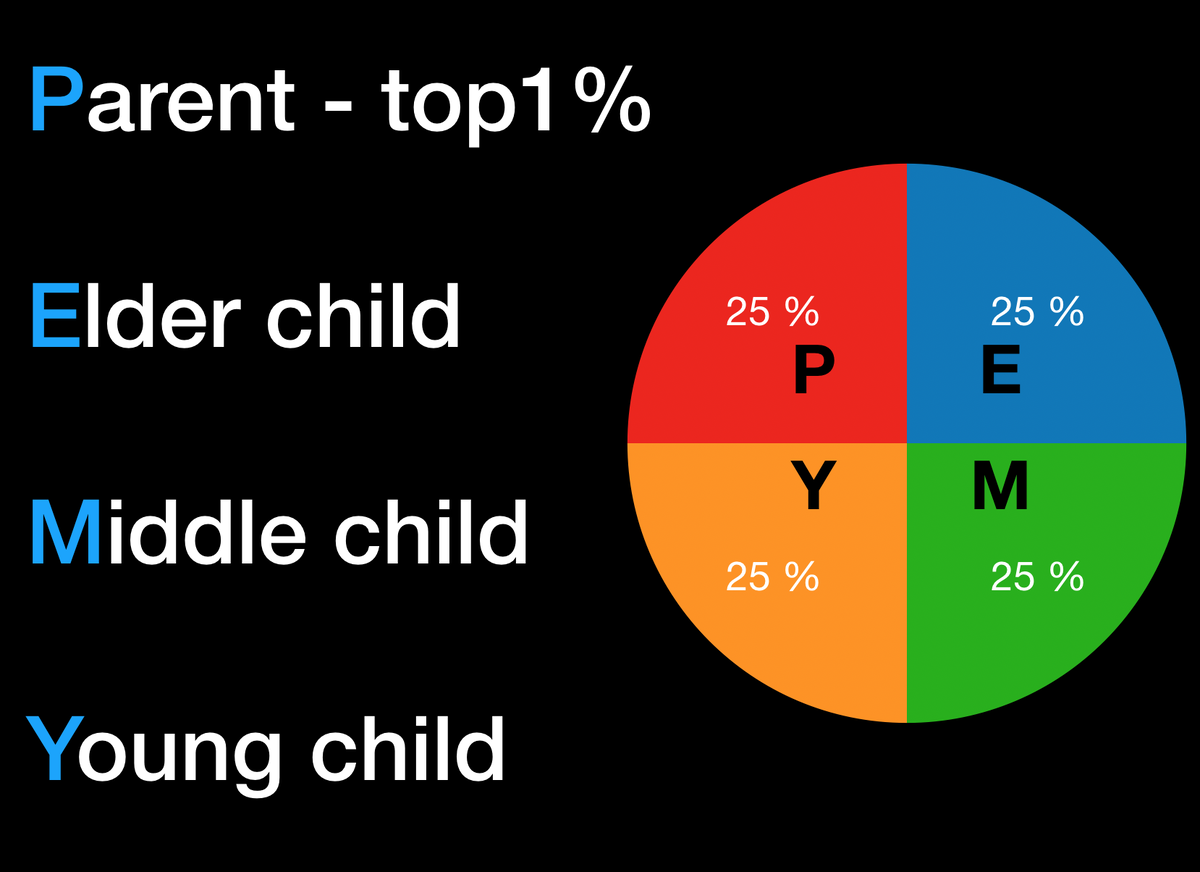
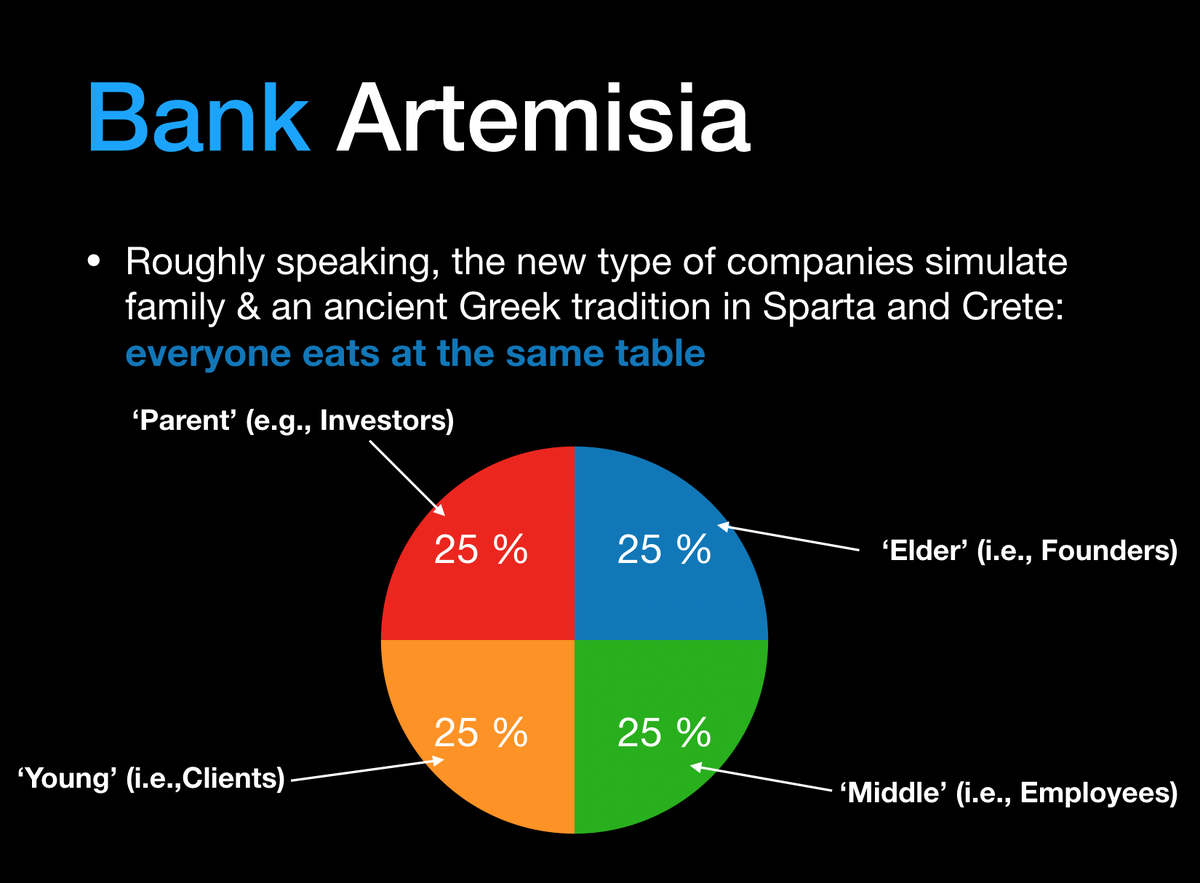
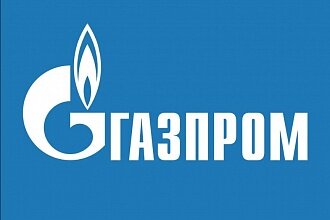

E: 25% — Durov and/or Senior management
M: 25% — Employees
Y1: 25% — Users who pay a monthly fee for use; each pays what they can
Y1: 25% — Users who pay a monthly fee for use; each pays what they can
Y0: 0% — Other users can use it for free, but they cannot participate in company life, vote for representatives, or discuss strategic issues
Life is the gift of the few to the many: those who know and can, to those who don’t know and can’t.A. Modigliani
Anthropotype and justice
To live means not only to satisfy the body’s material demands, but above all to be conscious of one’s human unity.J. Verne
Without increasing justice, accumulating internal contradictions are “managed” by redirecting attention and “righteous anger” at an “enemy,” whether internal, external, or hybrid. For this, an anthropotype is cultivated — a “dopamine addict” with low critical thinking, ideally with a (cognitive) “trauma.” This is practiced to varying degrees by all states, with different “levels” of success — greater (Ukraine, USA, Russia), lesser (Switzerland).
It’s also “popular” to “export” internal contradictions, tension, and problems outward (e.g., via financial/insurance systems, legislation) and “import” resources (e.g., human, minerals).
“Masculinity” and “male aggression” are a “threat” to the “status quo” — to the system — thus the cultivated anthropotype will be a “castrated man”/“effeminate”; this will be “encouraged.”
There are more worthy outlets for righteous anger than “Jew vs Palestinian,” “Azerbaijani vs Armenian,” “Ukrainian vs Russian”… and vice versa. For example: slavery (we’ve broken the “historical record” for number of slaves in the world), child and human trafficking, trafficking in children’s organs, pedophilia among the “elite,” “satanism” and/or misanthropy, world hunger. When I was small, “Africa is starving,” at 10 — “Africa is starving,” 20 — “Africa is starving,” 30 — “Africa is starving”; now I’m 40 — “Africa is starving,” still.
I know few problems that can’t be solved in 40 years (!!!). If this problem (hunger in Africa) hasn’t been solved, then it’s profitable to the beneficiaries of the current world order (for example, grain brokers from England …; traders on exchanges in England, Switzerland…; consumers of cheap African resources, both mineral and human…).
Any person who surpasses others in intellect and moral qualities, regardless of will or desire, is responsible for others.J. Verne
Forgiveness and compassion
Ivanov stole — imprison him, Petrov too — “execute him,” Rabinovich misappropriated — “bloodsucker”… I think if you take “10 people off the street,” they would perhaps “steal” no less. So the problem is our thinking, our values.
A person loves “newspapers, factories, and steamships” (I personally don’t need that; I cede “my share” to him) … it happens, as long as it passes.
People who reach high positions and seize “newspapers, factories, and steamships” are exceptional and talented in their own way. Maybe we should gradually “reset the social contract,” set such a person free if he “repents and wants to do good,” and try to find an application for his talents (maybe he’s a talented intriguer and such skills are needed in the foreign service), so he can own “newspapers, factories, and steamships,” and society benefits. I think if society openly gave a person 200 million instead of him stealing 1 billion, and he applied his “true” talents “to the point,” everyone would win.
I think we need more compassion and patience
Everyone exclaims: where is the man who will save us? We need a man! Don’t look for this man. He is at your fingertips. This man is you, I, each of us! How to make oneself a man? Nothing is harder if one cannot will it; nothing is easier—if one wills.A. Dumas — fils
Personal
The task of life is not to be on the side of the majority, but to live according to the law you consciously recognize within.Marcus Aurelius
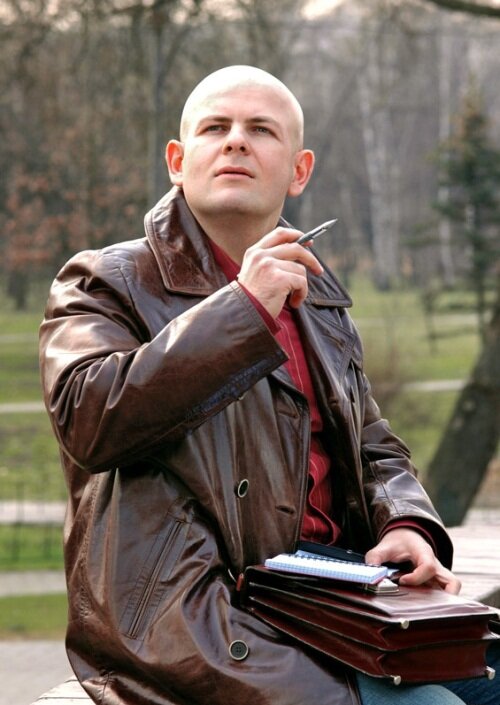
Though human life is priceless, we always act as if something else were more so.A. de Saint-Exupéry
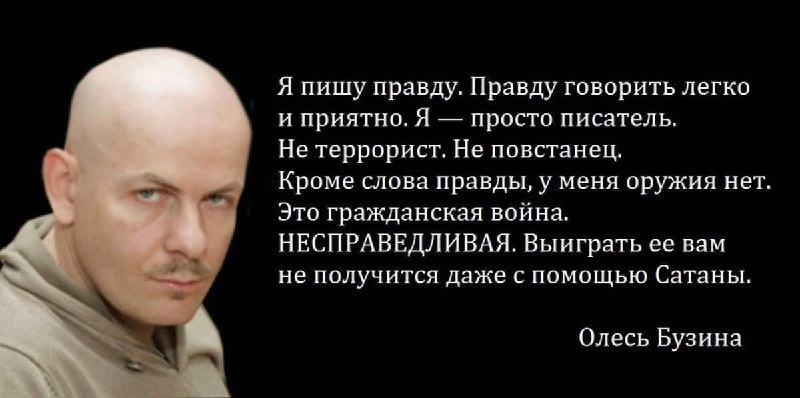
If you value your own life, remember that others value theirs no less.Euripides
Videos to remember: 5, 1, 2, 3, 4
Our children are also our “parents” in some contexts, perhaps our most important “teachers”: there is much we can learn from them — for example, preschool children from “Ukraine,” “Russia,” “Israel,” “Palestine,” “Turkey,” “America,” “Greece,” “Armenia,” “Azerbaijan”... will likely find a “common language” while playing, whereas after their schools... Also, will a boy in Africa who scores his first ever goal really be less joyful than an Oligarch who bought a new yacht...
I see conflict resolution as this: less violence, less blood. For some reason it’s considered “daring” with us to beat, to kill... less violence, more humanity.O. Buzina
Type 2
Type 2
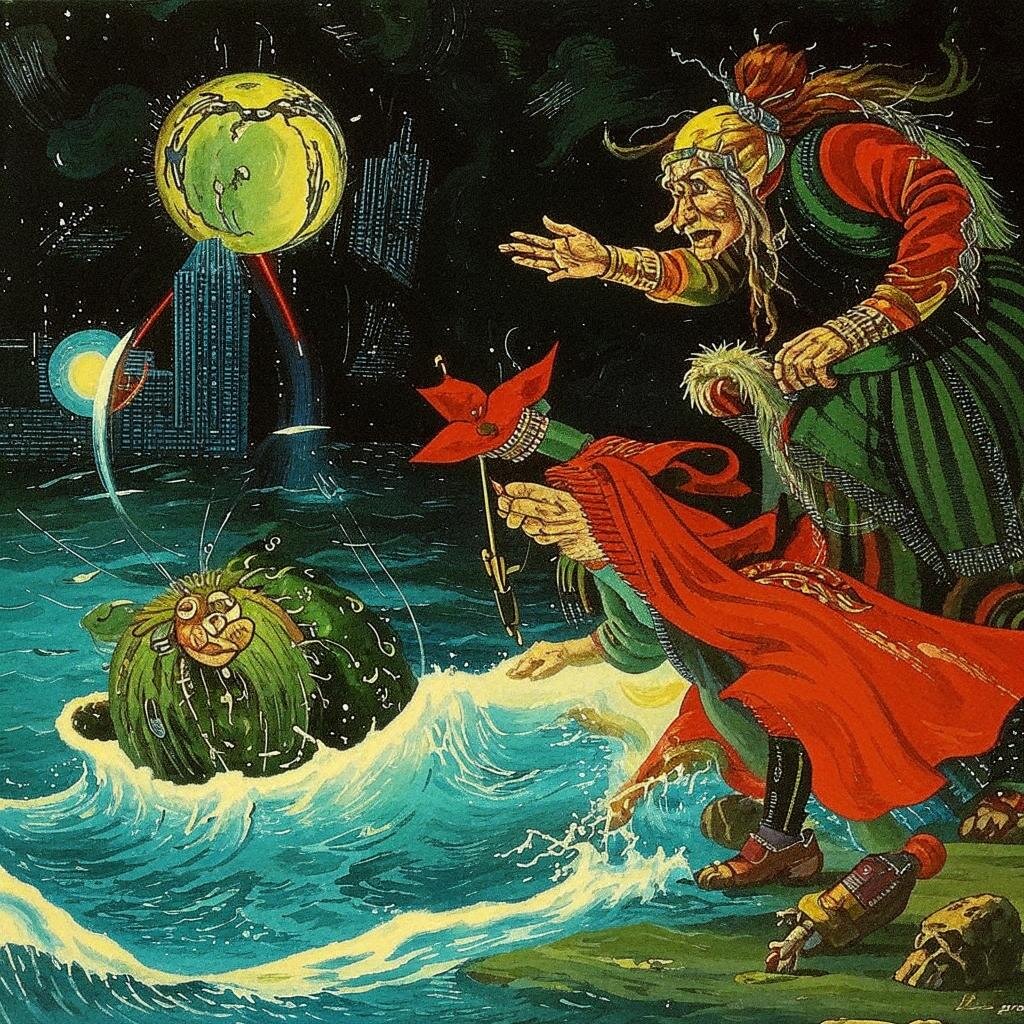
Andrey (from Greek “man”) sought meaning. Taking a magic ball of yarn from Baba Yaga, he risked his life and descended to the seabed to find the treasure he sought. The treasure was there safe and sound, though Andrey gained scars and prostheses in the descent. He celebrated the find in the forest with the birds, trees, wind, the Earth… The treasure was so beautiful there are no words to describe it. He decided to tell of it and share as best he could. The treasure remained there, untouched — Andrey no longer needed it; it is now always with him and no worse, his very own. The birds and others celebrate with him the joy of discovery.
A fairy tale may be a lie, but it hints the truth and teaches a good lad a lesson.
“I play the melody of my soul with my life — in defense of women and children”
Ω | #0: Metaphorical autobiography or the bunker stories of a professor
💬 Communication | Engage: Ω (Omega) Telegram Chat | Community
You can book a meeting via Calendly, or via Read.ai, email me at Email, or message me on Telegram.
You can book a meeting via Calendly, or via Read.ai, email me at Email, or message me on Telegram.
We won’t build a perfect society — that’s utopia — but if “today” has a little more justice, truth, and honor than “yesterday,” that’s already a good achievement
2 + 2 = 4…
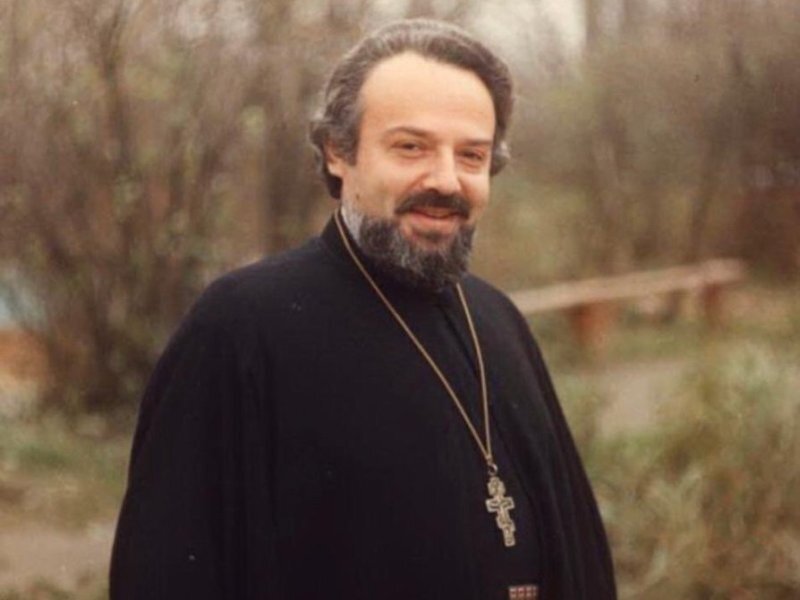
Every resident of Russia should benefit from the country’s resources (not just the “1%”).